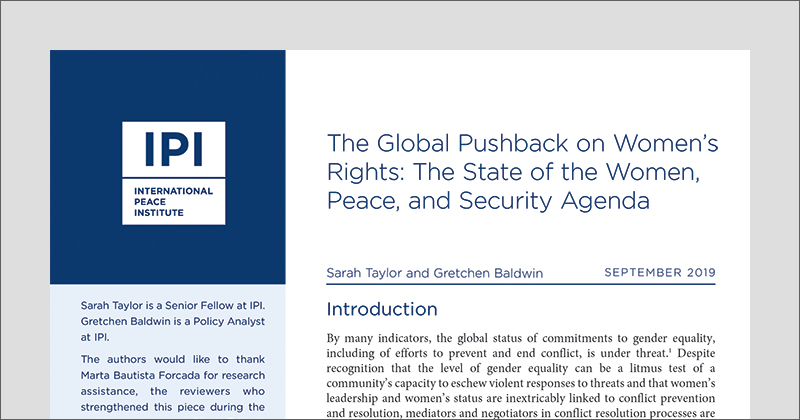
For two decades, the women, peace, and security agenda has been the subject of policy development internationally, regionally, and nationally. But by many indicators, the global status of these commitments to gender equality is under threat. In the multilateral system, a growing number of states are questioning established standards of women’s rights, while international policy and programming struggle to adapt to the gendered implications of the changing nature of conflict.
This issue brief takes stock of the state of the women, peace, and security agenda in the current geopolitical context, with a view to supporting strategic advances at the upcoming twentieth anniversary of UN Security Council Resolution 1325 (2000). It looks at characteristics of the current geopolitical context that are of concern to the defense of women’s rights, what these changes have meant for how the international community seeks to build peace and improve security, and how we can evaluate approaches to implementing WPS commitments in relation to these pressures on the multilateral system.
The paper concludes that in order for the women, peace, and security agenda to be an effective tool, it must move beyond rhetoric and be woven into actionable policy. It must become a driving force behind the development and implementation of peace and security policy and programming rather than being buffeted by political considerations that elide the status and rights of women. This depends on a sustainable increase in resources and improved accountability within the multilateral system.







